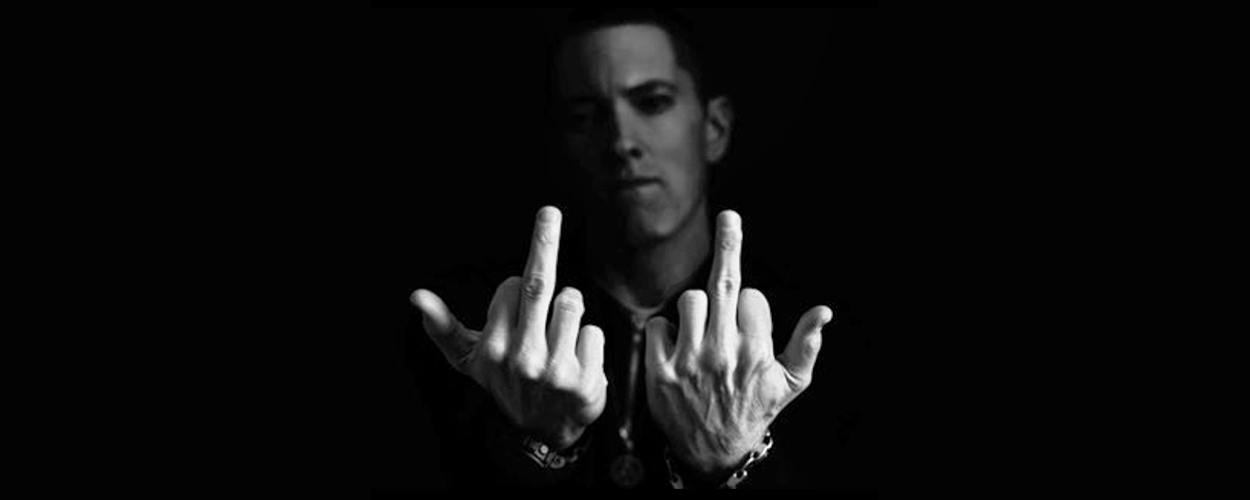This website uses cookies so that we can provide you with the best user experience possible. Cookie information is stored in your browser and performs functions such as recognising you when you return to our website and helping our team to understand which sections of the website you find most interesting and useful.
Artist News Business News Labels & Publishers Legal
Setlist podcast discusses the international implications of Eminem’s New Zealand legal win
By CMU Editorial | Published on Monday 30 October 2017

The lead story up for discussion on this week’s Setlist podcast is Eminem’s recent legal win against New Zealand’s ruling National Party over a sound-a-like track, and what effect it could have on similar cases in the UK.
Last week, Eminem and his publishing company Eight Mile Style won NZ$600,000 in damages from the National Party. A court ruled that it had infringed the rapper’s copyright by using a library music track that sounded like his hit ‘Lose Yourself’ in an election campaign advert.
The ad dated back to New Zealand’s 2014 General Election campaign and featured a track called ‘Eminem-esque’. The National Party argued that it had entirely legitimately licensed the piece of music from a production music company. However, emails between people involved in the campaign showed that they were aware just how similar the two tracks were prior to the advert being broadcast.
“The allegation here isn’t that The National Party set out to find a piece of music that sounded like Eminem’s ‘Lose Yourself'”, says CMU’s Chris Cooke on this week’s Setlist show. “However, it is known that there are production music companies out there who will make available to advertisers, and movies, and TV shows, music that sounds quite similar to commercially released tracks”.
And, he adds, “it is not unknown for advertising agencies to actually go to production music companies and say, ‘could you make us something a little bit like this track’. Either because they can’t afford to license the original commercially released track, or maybe even – and there are certainly instances where this has happened – they tried to license the original track and the label or the publisher – or the songwriter – said no”.
However, if you’re a copyright owner and you find yourself in this situation, the legalities around sound-a-like tracks are complex and ambiguous, which means many do not end up pursuing it through the courts.
“One of the problems is that this is something of a grey area in copyright law”, says Cooke. “And where there is ambiguity, it makes it expensive to pursue litigation, because you’re not assured that you will win. But you do know you’ll accrue significant costs in trying to fight a case. This obviously means that if you are a smaller independent label – or maybe you’re a DIY artist in control of your own music – that puts you at a massive disadvantage”.
The National Party may as yet appeal the ruling in the Eminem case, but if it ultimately stands, that could set an interesting new precedent.
“Copyright law in New Zealand is quite similar to copyright law both in Australia and here in the UK”, Cooke goes on. “They all originate in the same body of English copyright law. It might be that this will provide a convincing precedent that you could use to subsequently fight other cases of this kind”.
Certainly Eminem’s lawyers seemed to think the ruling in the ‘Eminem-eque’ case could prove significant in future disputes.
“So even if the advert, the movie, the whatever insists that they did the legitimate thing by either going to a production music library or commissioning something”, Cooke continues, “because they were clearly aware of the similarities prior to the ad going out, then there is possibly a decent case there for copyright infringement”.
The issue of sound-a-likes was discussed at the CMU Insights conference at The Great Escape back in 2015, and CMU’s Andy Malt also runs through some of the key points raised then in this week’s Setlist. Also dissected is the World Independent Network’s latest indie label market share stats and why they matter, plus Kid Rock’s exit from the political arena (which he never entered in the first place).
Listen to the episode in full here:





